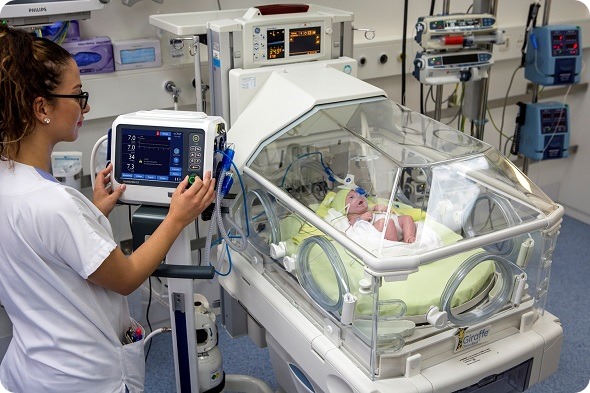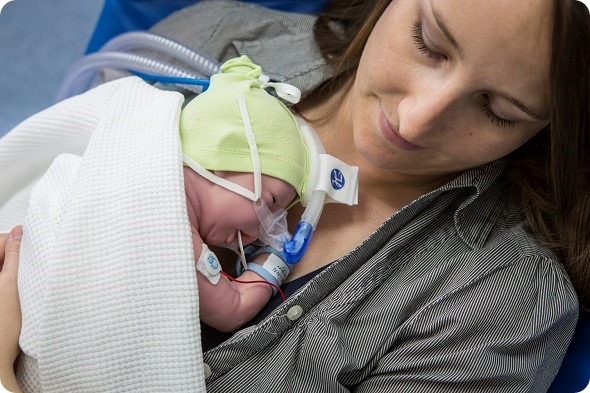Oct 23 2014
The high-performance capabilities of the HAMILTON-C1 with the new Neonatal option include lung protective strategies and adaptive ventilation modes to ensure that each baby receives treatment tailored to its specific needs. Requiring only a minimum of space, the HAMILTON-C1 combines high reliability, ease of use and maximum mobility with optimal performance for your most fragile patients.

Tidal volumes as low as 2 ml
With tidal volumes as low as 2 ml, the HAMILTON-C1 provides effective, safe, and lung‐protective ventilation for even the smallest preterm infants.1) The proximal flow sensor, specifically developed for neonates, precisely measures the pressure, volume, and flow directly at the infant’s airway opening and, therefore, ensures the required trigger sensitivity. This provides improved synchronization and less work of breathing.
Optimal synchronization even with uncuffed tubes
Leaks are one of the biggest problems in the ventilation of neonates, due to the use of uncuffed tubes. The intelligent leak compensation automatically adjusts the inspiratory and expiratory trigger sensitivity to potential leaks. This enables optimal synchronization with the neonate’s breathing pattern.

Hamilton Medical nCPAP - Fewer interventions, increased safety
The nCPAP modes of the HAMILTON-C1 are designed such that you only need to set the desired CPAP pressure. The flow is subsequently adjusted automatically based on the patient condition and potential leaks. This prevents unintended peak pressures and guarantees highly efficient leak compensation. Flow adjustment occurs very rapidly due to near‐patient pressure measurement and the high sensitivity of the measurement.
*Currently available in EU and EFTA member states and other countries that recognize CE marking.
Regarding availability in other markets, contact Hamilton Medical. Not yet available in the USA.